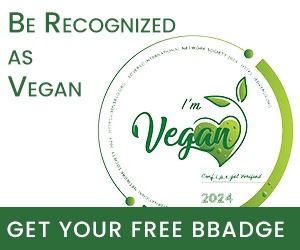Omega-3 fatty acids are crucial for your overall health, offering benefits for your heart, brain, and eyesight. Traditionally associated with fish, these essential nutrients can also be abundantly sourced from the plant kingdom—perfect for those following a vegan lifestyle. Here’s your guide to understanding omega-3s and how to incorporate them into your diet without relying on fish.
Understanding Omega-3 Fatty Acids Omega-3s are essential fatty acids, meaning they must be obtained through your diet. The three main types are ALA (alpha-linolenic acid), DHA (docosahexaenoic acid), and EPA (eicosapentaenoic acid). While ALA is commonly found in plants, DHA and EPA are traditionally sourced from marine life. However, vegan options are available that provide these nutrients without the need for fish.
Plant-Based Sources of Omega-3s The vegan diet offers various sources of ALA, such as walnuts, chia seeds, flaxseeds, hemp seeds, and Brussels sprouts. These foods are not only rich in omega-3 but also provide dietary fiber and other essential nutrients.
For DHA and EPA, marine algae stand out as an excellent plant-based source. Algae is the primary producer of these fatty acids, which fish consume. By going directly to the source, vegans can obtain DHA and EPA without the ethical and environmental issues associated with fishing.
Benefits of Omega-3s from Plant-Based Sources
- Heart Health: Omega-3s help reduce cardiovascular risks by lowering blood pressure and cholesterol levels.
- Brain Function: Adequate omega-3 intake is crucial for maintaining cognitive function and preventing age-related mental decline.
- Reduced Inflammation: These fatty acids play a crucial role in reducing bodily inflammation, a root cause of many chronic diseases.
The Problem with Fish-Based Omega-3s Fish-based omega-3s come with drawbacks, including exposure to toxins like mercury and PCBs. These compounds can negate the positive health effects of omega-3s and pose serious health risks. Additionally, overfishing is a significant concern, with detrimental impacts on our oceans’ ecosystems.
Daily Omega-3 Requirements Adults should aim for 250-500 mg of combined DHA and EPA per day, according to most health organizations. Plant-based sources can help meet these needs, especially when supplemented with algae-based products.
Conclusion Incorporating plant-based omega-3s into your diet is not only possible but advisable for those seeking to avoid the ethical and environmental pitfalls of fish consumption. By choosing plant-based sources like walnuts, seeds, and algae, you can enjoy the extensive health benefits of omega-3s while adhering to a vegan lifestyle. Remember, consulting with a healthcare provider before starting any new supplement regimen is wise to ensure it aligns with your individual health needs.








